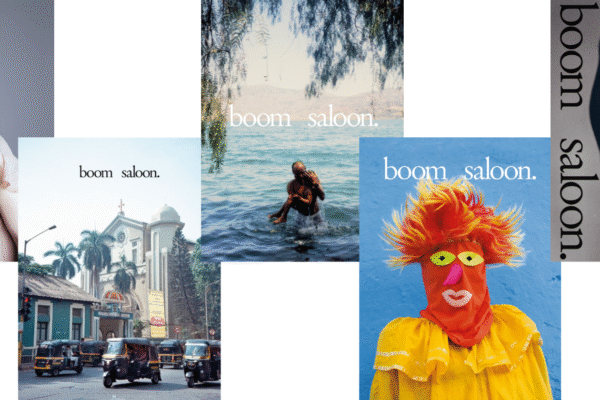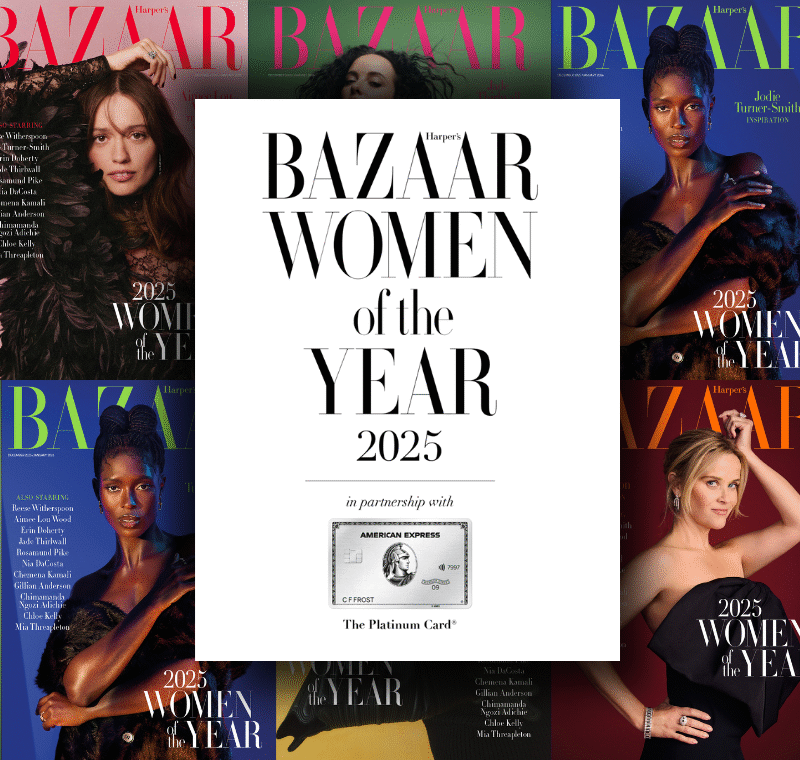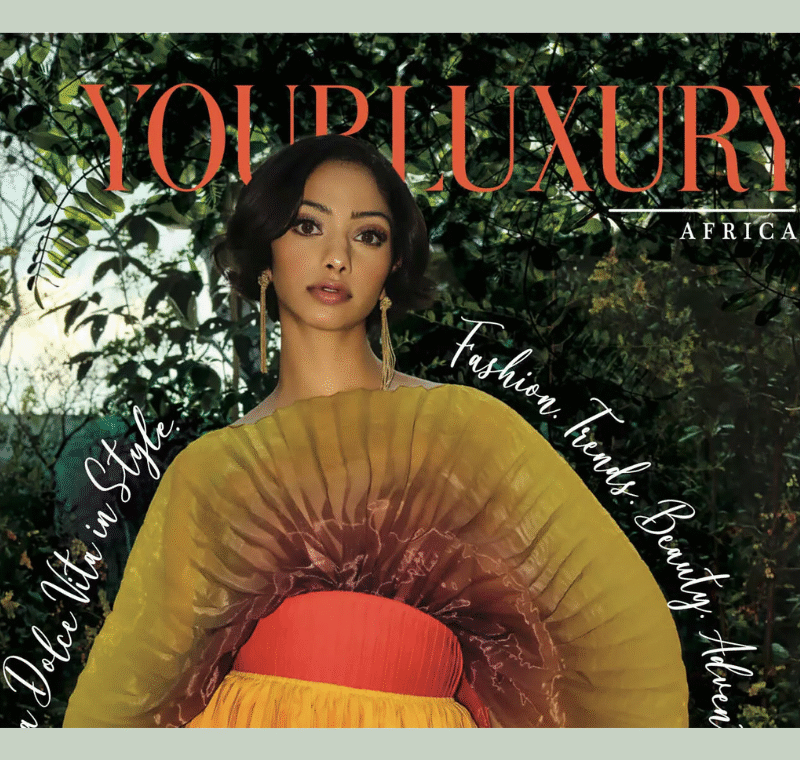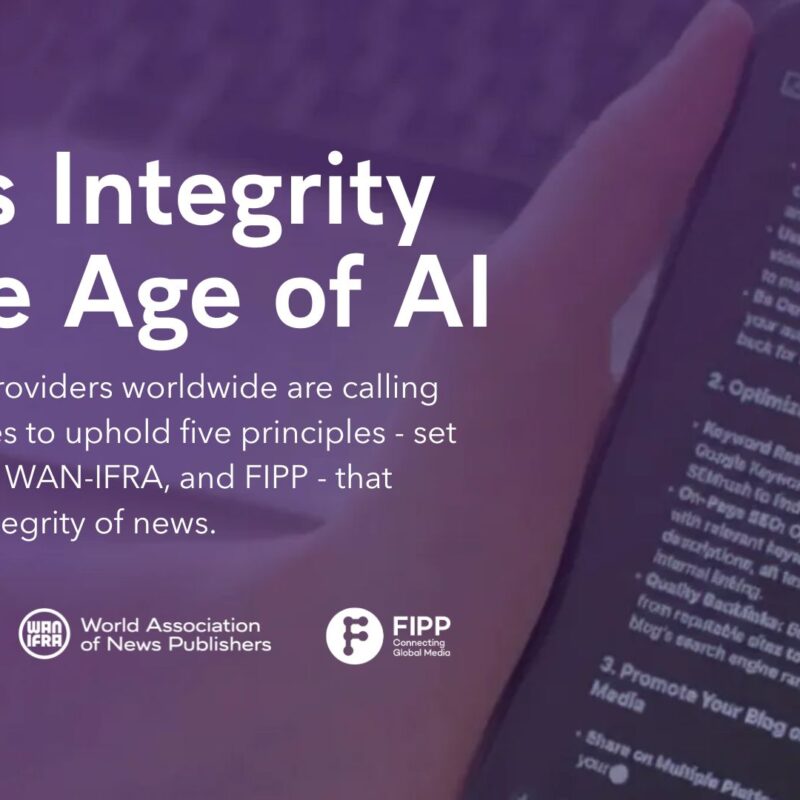Work in progress: Boom Saloon founder Rachel Arthur on innovative work arrangements, the safety of journalists and the rise of AI
In the second part of our series exploring what the media workplace looks like in 2025, and how it might evolve in the near future, we catch up with Rachel Arthur, founder of Boom Saloon, the Edinburgh-based independent media organisation.
Founded in 2016, Boom Saloon explores the UN’s Sustainable Development Goals across print publications, online features, newsletters, events and a creative studio space. Profits are used to fund community projects, which in turn inspire and empower those facing challenges such as forcible displacement, homelessness and dementia.
In October 2023, Boom Saloon launched a new membership initiative offering numerous perks, including access to a global community of writers, photographers, filmmakers, architects and academics; exclusive discounts for products and events; and regular email newsletters exploring the creative endeavours having a positive impact around the globe.
By signing up, new members get an opportunity to contribute directly to the evolution of the business and have a say in the stories shared across their entire media ecosystem.
“When things were incredibly challenging politically in Iran, we had one of our long-standing members come to us and say they have connections on the ground in the art space where they are facing a number of challenges,” recalls Arthur.
“It was very unstable and potentially unsafe for them to speak to certain outlets, but because of the closeness of the relationship with our members there’s a trust we would do the right thing with this story. So, we were put in touch with the member’s connection and worked together to make sure that it was pitched in the right and safest manner.”
We sat down with Arthur to discuss her concerns for the safety of journalists, how Boom Saloon takes a novel approach to flexible working, and how her company is dedicated to ‘democratising creativity’.
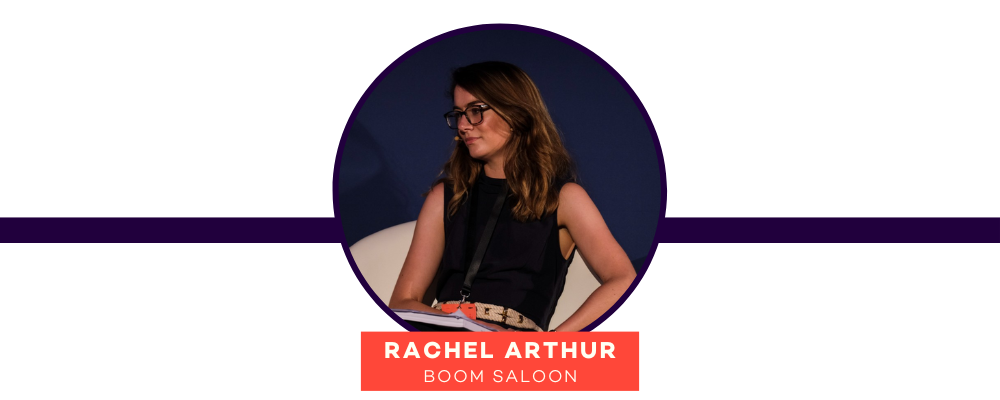
How does Boom Saloon fit into the media landscape?
I think we’re at quite an interesting intersection. Everyone knows the creative industries face a lot of barriers to access and ‘development speak’ isn’t really a part of the everyday vernacular – so that’s a huge challenge for us. But within that space we work to uncover the voices that aren’t really covered by mainstream media and those who tend to be quite overlooked or undervalued. We work directly with them to essentially create an avenue into these conversations around development and sustainability and essentially work to empower our readers to better connect with the changes that really pave the way for a better future for everyone. So, we are both niche and complex. We never moved into the advertising space but when we came to be, it still felt like that was the backbone of all media. So many people said to us – you are crazy and you will not exist (without advertising). It then moved from that into the subspace which was never quite the right fit for us. It almost felt very transactional and there wasn’t a real connection there. Seeing how it’s moving into membership for us personally is really exciting.
What advice would you give those who are building their own independent media organisation?
I think the main one for me would be being flexible – so, constantly learning, evolving testing and growing. There’s been so much discussion around the need for a growth mindset in the last decade or so, but I really think it is more vital now than ever. It just feels so consistently and incredibly volatile, so I really think the only ones that will survive are the ones that can change with the times. Someone asked me recently about our mission to democratise creativity and if that has changed. I always look people dead in the eye and say categorically, no. But what absolutely might change and has changed and will change going forward is how we do that. It doesn’t matter whether we are a media organisation or something very different, so long as we are democratising creativity for good. That’s at the heart of Boom Saloon.
How has the media landscape changed since you launched Boom Saloon?
I find it so overwhelming because there’s so much change. Obviously, AI is a huge one. What’s been really interesting in my time is just seeing how much that conversation has shifted from complete denial. Going from thinking of it as a crazy robotic thing that will never come to be to bafflement and confusion. There were about two years of panic that we’re going to lose our jobs, the industry will be obliterated and there’s nothing we can do. And finally, there was a bit more acceptance and then some strategic implementation and thinking to the positives and what will be possible. That is definitely the mindset we try to move into.
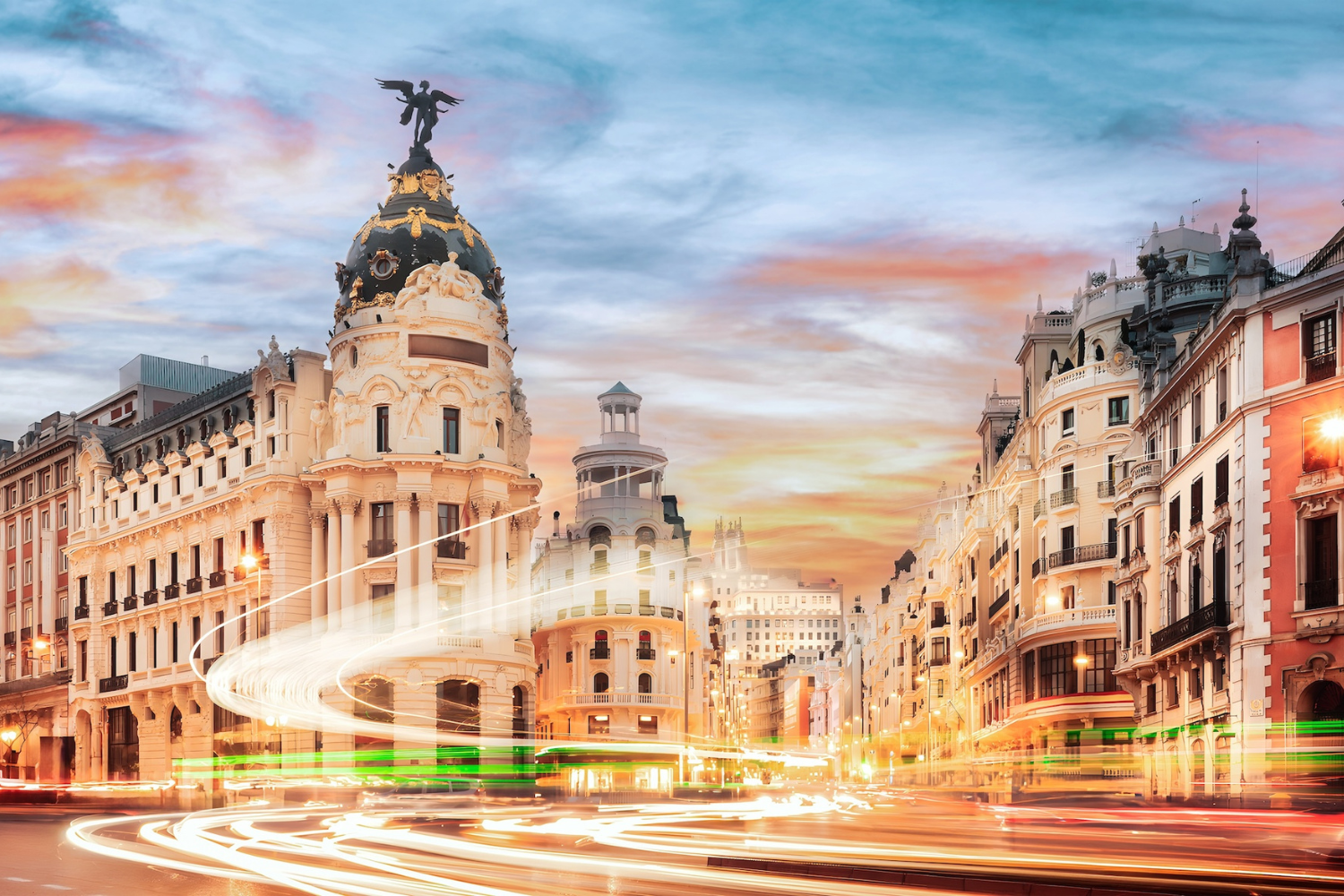
FIPP WORLD MEDIA CONGRESS
Madrid, Spain, 21-23 October 2025
What does the next era of media look like?
Hear from Time, The New York Times, Arab News, The Economist, Axel Springer, Condé Nast, Hearst, RocaNews… and many more.
What are some of the concerns you have about the future of the media industry?
I suppose it’s more of a conversation for breaking mainstream media news outlets – but journalism safety. I do worry about how we get the information out there, who has the power to do that, but also what is the safety that is in place for journalists. I think more can be done to show the value of journalists. I like to see people in positions of power supporting that. I wouldn’t want them to necessarily change their ways of operating to make that happen, but I think there needs to be more structural change and just more recognition and support for the industry. I also think – and I know this puts people’s backs up when I speak about it – media as a whole has been so fundamentally arrogant. No one should have been caught unawares by the internet and AI, but I just think big media, in particular, assumed we’re untouchable, we don’t need to change anything. I almost feel to some extent we’ve undervalued ourselves, and that should not mean it’s acceptable for people to be unsafe within this industry. Op-eds in particular have massively changed everything, because now suddenly it can just be an opinion thrown out there. How is that different to anyone else’s opinion that opens the floodgates to a whole plethora of potential danger and disinformation.
What is Boom Saloon’s approach to flexible working, and how do you see the industry evolving over the next few years in terms of where people are based?
We’re a very small team based in Scotland, but we’ve operated internationally from day one. Initially we were just sending publications around the world and relying on a total stranger picking it out from a wall of 200. So, we knew that was an issue from day one and it became even harder when we have contributors from all around the world. They get very excited about being in print. They want to be able to buy the publications and share them with their family and friends. Also, while we want to be as close to the stories that we’re sharing as we possibly can, we have a huge focus on environmental sustainability. We have that front and centre as well as realistically not having the budgets to fly around the world all the time. So, I struck upon this concept of – what would happen if I personally decided to forgo any holidays in my life and once a year move to another country and live and work? That way I could properly start to understand what the ecosystem was and what the stories were on the ground. It was an idea that just kind of bubbled away and then in 2023 I did it for the first time and I went to Kuala Lumpur. I had never been to anywhere in Asia before and I didn’t know a single person in KL, so we definitely jumped in at the deep end. But it was fantastic, there were so many learnings and it was such an interesting way of working. There were many challenges – the time difference for instance was really tricky. So, for six months of the year the team will be fully remote, and we accept that we focus on something different during that time, versus when we’re all together where we focus on anything that’s in print, anything we need to see physically and in-person meetings that need to happen in the UK. It is somewhat bonkers to have to say to some people back home – we can schedule that in six months. But that’s how we’ve always worked with people elsewhere around the world, so I don’t see why it shouldn’t be possible in the UK.
More from Work in Progress: Cardiff University on how it’s preparing journalism students for a career in the fast-evolving media industry
So, where are you based at the moment?
I’m in Athens, which was the next place on the list. We’re keen to get some more of the team out here. There’s a couple of stories in particular bubbling away that I would love to have some more team members on the ground to cover, but that’s going to be phase two. I came here for the first time last year and a couple of weeks ago we decided – let’s just have an in-person event. We’ve never been able to do that before. We had 12 people or so, but it was fantastic because they then told a friend each and they then start to have a look at the website and they pass around the publications. It’s just a much more honest, tangible and personable way of growing an audience and I just adore it. So much of our work is done digitally, but there are some things that you just cannot replicate in the same way. And I really appreciate being able to learn from other cultures, learn about how different markets work, how collaboration looks like on the ground, different cultural ways of being. It changes everything for us. I fully appreciate the challenges of how you scale that type of thing. But are you scaling for the sake of needing to scale or do you actually need to? Because different answers to that question will necessitate different ways of working.
Are you confident that there will be an equal and diverse media workspace for future generations?
No. I just don’t think enough is being done. We are consistently receiving compliments on being such trailblazers in the DEI space, because we dared to share the voice and opinions of a poet who’s partially sighted next to a former prisoner of war next to a photographer from the world ‘s largest refugee camp. It shouldn’t be held as this massive beacon of success. Why are we still here? I do think we are moving in the right direction, but I just think it’s not happening quickly enough. And I think too often it’s seen as something secondary to what we need and way of ticking a box. It baffles me that we’re still at a point where people consider gender and race as the only parts of DEI to think about. I worry that the industry is welcoming to people when it suits to be welcoming to people and tokenism is still happening within the DEI space – one new hire and suddenly there’s a whole press release about the fact that we have someone who thinks slightly differently or looks slightly differently. I’m not pessimistic, I’m more frustrated because I don’t think DEI is an incredibly hard thing to do.
Which new roles do you see being created, or old roles being phased out, over the next five years or so?
The combination of AI and the finances, models and structure of the industry will probably obliterate a number of existing roles. People used to go around and light candles for streetlights and that is not a job anymore. Instead, we employ many hundreds of thousands of electrical engineers. It’s challenging to imagine in advance what roles might take a hit, but I think if you don’t accept it will change the shape of everything, then you are very much missing a trick. At Boom Saloon, we’re using AI, but we do have hard lines as to where it doesn’t work for us and a lot of that is around the core of our offering. We have defining editorial and breathtaking photography that will not be touched artificially. Where we absolutely will lean into AI is if it expedites me writing a funding application. If we can use AI to protect the core of everything that we should be good at, absolutely I am all in favour of that. What I don’t like to see is when it’s used to replace the things that should be the absolute foundations of this industry, the things that we do that no one else should be able to do.

